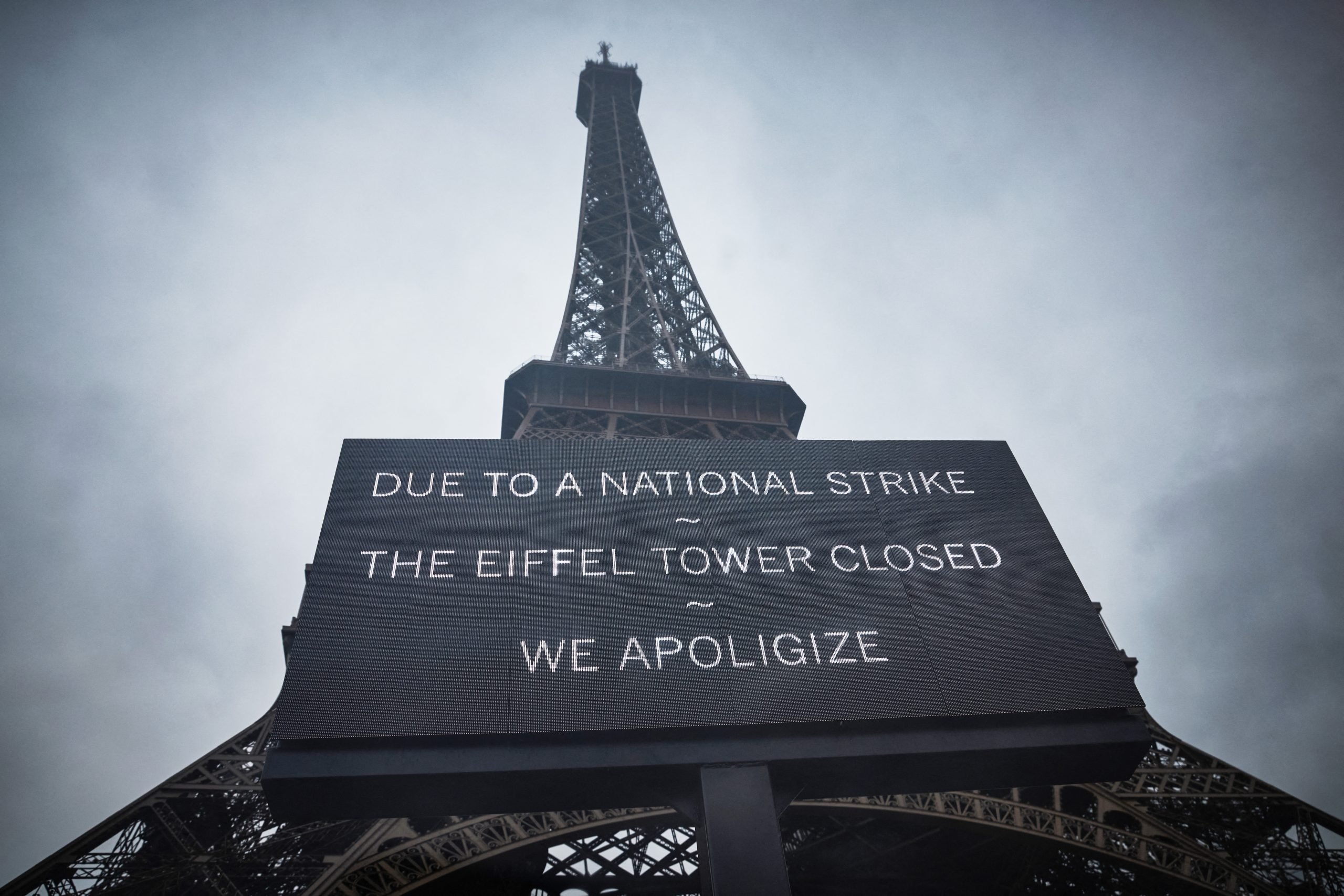
150 to 200 workers at Eiffel Tower have been on strike for five consecutive days, led by the General Confederation of Labour (CGT) and Workers’ Force (FO) unions of the Eiffel Tower Operating Company (Sete). The strikers make up around half of Sete’s 360 permanent staff at the tower. The groups have been on strike since Monday, February 19, stating poor financial management of the site on the part of the City of Paris, the 99 percent shareholder of the iconic tourist site, which first opened in 1889.
Sete representatives claim that the monument is deteriorating due to neglect from the City of Paris, pinpointing a lack of repainting campaigns. They have also said that revenue has been overestimated, while budgets for the upkeep of the monument have been undervalued.
Workers previously went on a day-long strike on December 27, 2023—the 100th anniversary of the death of Gustave Eiffel, the tower’s engineer and namesake—over contract negotiations. The monument is typically open 365 days a year.
General secretary of the French CGT (Union General Confederation of Labor) Sophie Binet speaks during a press conference at the Eiffel Tower, in Paris, on February 22, 2024. Photo: Dimitar DILKOFF / AFP.
The City of Paris did not comment on the situation until Wednesday, February 21, when First Deputy Major of the city Emmanuel Grégoire said they were “listening to the demands” and “trust the operating company to dialogue with employees and resolve concerns.” The politician also said that the “Eiffel Tower is a jewel of the city, which is the subject of very heavy investment… This monument is in very good condition.”
Olivia Grégoire, France’s Minister for Small and Medium Enterprises, Trade, Crafts, and Tourism, told listeners on Hauts-de-Seine’s Sud Radio the same morning that the management of Paris by the current municipal team “is disastrous and it is deplorable,” highlighting the role that city major Anne Hidalgo plays in the problem: “The most beautiful monument in Paris, she lets it deteriorate, not to say collapse.” Hidalgo has served as Major of Paris since 2014.
At a press conference held in front of the Eiffel Tower yesterday Sophie Binet, General Secretary of the CGT, told reporters that “it is not a question of security for visitors, but a problem of investments for the future, particularly in financing the painting project, which is much more expensive than expected, because lead was discovered.” The tower is typically repainted every seven years, but has not been painted in the last 14 years. This delay has estimated to have caused €120 million ($130 million) in additional costs.
Denis Vavassori, of the CGT, told the Associated Press that “it would be a shame to continue the strike and its demands during the Olympic Games,” which are set to open in Paris on June 26. The city is already experiencing increased tourist numbers ahead of the games, and admission prices for cultural landmarks including the Louvre and tickets for the Metro are being raised this summer.
A pop-up on the official Eiffel Tower website currently reads: “Visitor information—Exceptional closure. Due to a strike action of a part of the Eiffel Tower personnel, the Eiffel Tower is currently closed. Visitors with e-tickets for today are invited to check their email. We apologize for the inconvenience.”